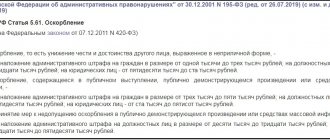Definition
Jurisdiction is a set of procedural rules that outline the range of cases that a particular type of judicial body has the right to consider. At the same time, jurisdiction in the general sense acts as a synonym for the word “competence”, that is, an objective opportunity to resolve the issue on its merits. In addition to the court, it is possessed by various bodies: the prosecutor's office, the notary office, the administration, etc.
Jurisdiction is a more private concept that is used in civil, administrative and criminal law and refers to the distribution of cases when they are considered by courts in the first and subsequent instances. Certain aspects of this definition are understandable to a non-specialist. Thus, the constitutional court cannot consider a criminal case, and the economic court cannot consider disputes between two individuals. In practice, there are many more subtleties, and sometimes it is very difficult to find the right institution to consider the application on its merits.
Jurisdiction of cases to arbitration courts
The arbitration court has jurisdiction over cases of economic disputes and other cases related to the implementation of entrepreneurial and other economic activities.
Arbitration courts resolve economic disputes and consider other cases involving organizations that are legal entities, citizens carrying out entrepreneurial activities without forming a legal entity and having the status of an individual entrepreneur acquired in the manner prescribed by law (hereinafter referred to as individual entrepreneurs), and in cases provided for by this The Code and other federal laws, with the participation of the Russian Federation, constituent entities of the Russian Federation, municipalities, state bodies, local governments, other bodies, officials, entities that do not have the status of a legal entity, and citizens who do not have the status of an individual entrepreneur.
Arbitration courts hear cases:
- about insolvency (bankruptcy);
- on disputes specified in Article 225.1 of the Arbitration Procedure Code of the Russian Federation;
- on disputes regarding refusal of state registration, evasion of state registration of legal entities and individual entrepreneurs;
- on disputes arising from the activities of depositories related to the recording of rights to shares and other securities and the implementation of other rights and obligations provided for by federal law;
- on disputes arising from the activities of public law companies, state companies, state corporations and related to their legal status, the procedure for managing them, their creation, reorganization, liquidation, organization and the powers of their bodies, the liability of persons included in their bodies;
- on disputes regarding the protection of intellectual rights with the participation of organizations engaged in collective management of copyright and related rights, as well as on disputes within the jurisdiction of the Intellectual Rights Court in accordance with Part 4 of Article 34 of the Arbitration Procedure Code of the Russian Federation;
- on the protection of business reputation in the field of entrepreneurial and other economic activities;
- other cases arising during the implementation of entrepreneurial and other economic activities, in cases provided for by federal law.
Comparison
Jurisdiction can be generic, territorial, exclusive, contractual, alternative and by connection of cases. Jurisdiction – exclusive, conditional and alternative. In other words, when determining jurisdiction, it is necessary to know the essence of the legal dispute; when determining jurisdiction, it is also necessary to know the location of the defendant, as well as other subtleties (the ability of the court to consider a particular case). If the jurisdiction rule is violated, the case will be dismissed. If the rules of jurisdiction are violated, the case is transferred to the appropriate judicial authority. The transfer may also be carried out in connection with the reformulation of the stated requirements.
So, jurisdiction determines the type of court that will consider the case, while jurisdiction is a specific body and its territorial location. The parties can agree on jurisdiction, but not on jurisdiction.
Jurisdiction of cases of administrative offenses
In the event of the abolition of the body, institution, their structural divisions or territorial bodies, or the position of an official specified in Chapter 23 of the Code of Administrative Offenses of the Russian Federation or in the law of a subject of the Russian Federation, before the relevant amendments and additions are made to the Code of Administrative Offenses of the Russian Federation or in the law of the subject of the Russian Federation, cases of administrative offenses under their jurisdiction considered by the judges.
In case of transformation, other reorganization or resubordination of the body, institution, their structural divisions or territorial bodies specified in Chapter 23 of the Code of Administrative Offenses of the Russian Federation or in the law of the subject of the Russian Federation, before the relevant amendments and additions are made to the Code of Administrative Offenses of the Russian Federation or in the law of the subject of the Russian Federation, cases on administrative matters under their jurisdiction offenses are considered by the body, institution, their structural divisions or territorial bodies to which these functions are transferred.
In the event of a change in the names of a body, institution, their structural divisions or territorial bodies, or the position of an official, specified in Chapter 23 of the Administrative Code of the Russian Federation or in the law of a constituent entity of the Russian Federation, officials of this body, institution, their structural divisions or territorial bodies continue to exercise powers related to the consideration cases of administrative offenses, before appropriate amendments are made to the Code of Administrative Offenses of the Russian Federation or to the law of a constituent entity of the Russian Federation.
Friends, how to determine the jurisdiction of the courts correctly? Write a few words about this in the comments and share this information on social networks with your friends. And in order not to miss other important changes in new laws in the future, subscribe to receive news.
RAA Law
Free legal consultation by phone
Conclusions TheDifference.ru
- General meaning. The concept of jurisdiction can be used in relation to various government bodies, the concept of jurisdiction - only in relation to courts.
- Determination order. First, jurisdiction is determined, that is, the procedural possibility of considering the application on its merits, and then jurisdiction, or specific attribution to a specific state judicial authority.
- Consequences of violation. If jurisdiction is violated, then the case is subject to termination; if jurisdiction is violated, then transfer to another court.
- Features of submitting an application. Certain categories of disputes are subject to judicial review only after the settlement of mutual claims. Violation of this rule of jurisdiction entails either refusal to accept the application or termination of the case. Jurisdiction does not have this feature.
What do you need to know about the jurisdiction and jurisdiction of cases?
What you need to know about jurisdiction (general points)
The concept of jurisdiction
implies the competent actions of a government agency within its jurisdiction.
For example, it is within the competence of judges to resolve disputes between citizens arising from family/labor/housing/land and other legal relations, notaries to perform notarial acts, traffic police officials to impose administrative fines, etc.
For example, courts of general jurisdiction also hear cases:
— on challenging regulatory legal acts in whole or in part (Article 245 of the Code of Civil Procedure of the Russian Federation),
- on establishing facts of legal significance, on the adoption of a child, on recognizing a citizen as missing or declaring a citizen dead (Article 262 of the Code of Civil Procedure of the Russian Federation).
What you need to know about writ proceedings
In the absence of a dispute about the law, cases are considered in writ proceedings (indisputable). Based on the results of consideration of such cases, the court issues a court order - a court decision made by a single judge on the basis of an application for the collection of sums of money or for the recovery of movable property from the debtor.
Writ proceedings are initiated on the basis of an application, the plaintiff is called the claimant, and the defendant is called the debtor.
Requirements for which a court order may be issued:
— the claim is based on a written transaction;
- the requirement is based on the notary’s protest of the bill of non-payment, non-acceptance and undated acceptance;
- on the collection of alimony for minor children, not related to establishing paternity, challenging paternity (maternity);
— on the collection of arrears from citizens in taxes, fees and other obligatory payments;
- on the collection of accrued but not paid wages to the employee;
- declared by the internal affairs body to recover expenses incurred in connection with the search for the defendant or debtor.
The judge has the right to refuse to accept an application for a court order within 3 days on the general grounds of Art. 134, 135 of the Code of Civil Procedure of the Russian Federation, either documents confirming the stated requirement have not been submitted, or the existence of a dispute is evident from the application, or the state duty has not been paid.
A court order is issued within 5 days from the date of receipt of an application for a court order. A court order is issued without a trial or summons of the parties. The debtor, within 10 days from the date of receipt of a copy of the order, has the right to submit objections regarding its execution. If the debtor objects to the execution of the court order, the order is canceled.
If no objections are received, the judge gives the claimant a copy of the court order, certified by the official seal of the court, to present it for execution, or, at the request of the claimant, the court sends it to the bailiff.
What you need to know about special production
Cases of special proceedings are considered and resolved by the court according to the general rules of claim proceedings (see also Chapters 27 - 38 of the Code of Civil Procedure of the Russian Federation).
For special production
Cases being considered:
- on the establishment of facts of legal significance (the fact of acceptance of the inheritance and the place of opening of the inheritance, the fact of ownership and use of real estate, the fact of being a dependent, etc.);
— about the adoption of a child;
- on recognizing a citizen as missing or declaring a citizen dead;
— on limiting the legal capacity of a citizen, on declaring a citizen incompetent, on limiting or depriving a minor aged 14 to 18 years of the right to independently manage their income;
— on declaring a minor fully capable (emancipation);
- on recognition of a movable thing as ownerless and recognition of the right of municipal ownership to an ownerless immovable thing;
— on the restoration of rights to lost bearer securities or order securities (call proceedings);
— on forced hospitalization of a citizen in a psychiatric hospital and forced psychiatric examination;
— on making corrections or changes in civil status records;
- on applications for notarial acts performed or refusal to perform them;
- on applications for the restoration of lost judicial proceedings (terminated in whole or in part by a court ruling).
What is absentee proceedings
If the defendant, duly notified of the place and time of the court hearing, does not appear in court, does not report valid reasons for failure to appear and does not ask to consider the case in his absence, then absentee proceedings are used with the consent of the plaintiff.
If the plaintiff objects to the court considering the case in absentia (without the presence of the defendant), then the consideration of the case is postponed to the next hearing, and the defendant is sent a new notice of the time and place of the next court hearing.
A decision made in absentia may be canceled at the request of the defendant if:
- the reasons for the defendant’s failure to appear in court have been clarified and recognized as valid;
- the defendant could not inform the court about them;
— the defendant refers to circumstances and presents evidence that may influence the content of the court decision.
After the cancellation of the default judgment, the consideration of the case is resumed on the merits.







